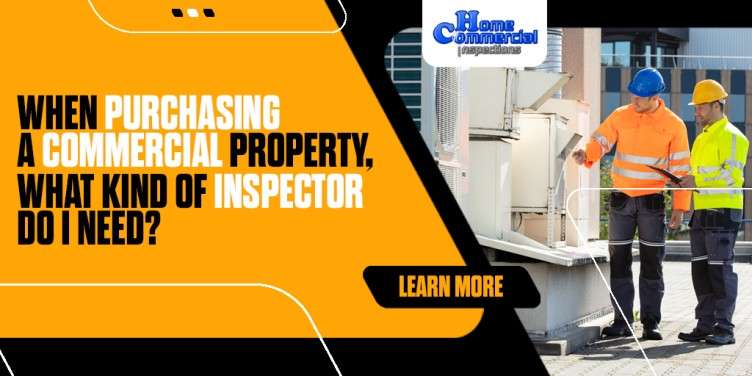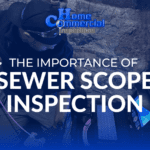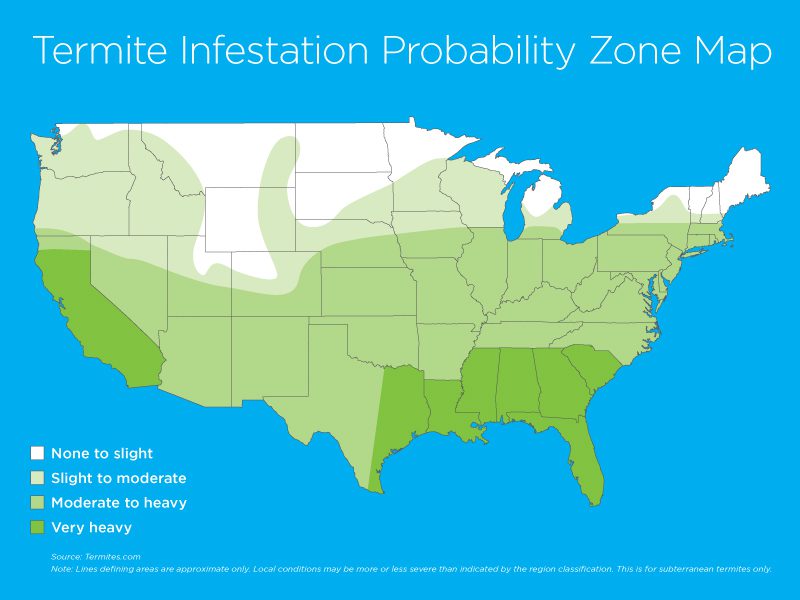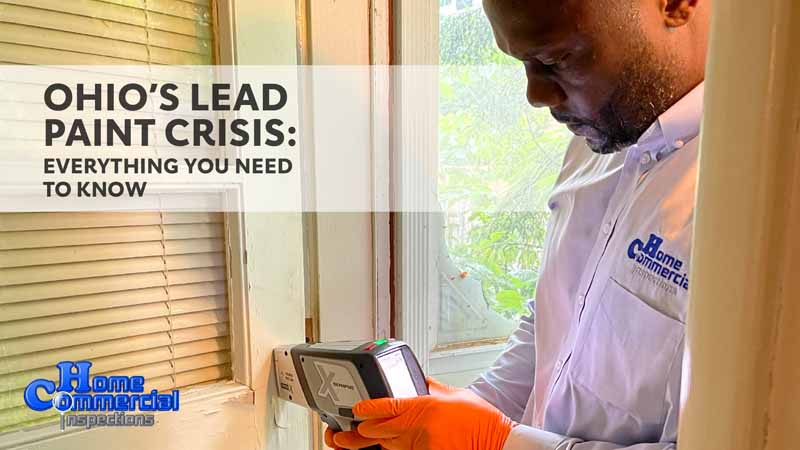
When Purchasing a Commercial Property, What Kind of Inspector Do I Need?
February 2, 2023
Uncovering Hidden Headaches—The Importance of Sewer Scope Inspections in Ohio
March 14, 2024VA Termite Map Zones
US Termite Map Zones for VA Inspections
When purchasing a home using a VA loan, it is essential to be aware of the potential risks associated with termite infestations. To ensure the structural integrity and value of the property, the Department of Veterans Affairs (VA) has established termite map zones across all 50 states. These zones help determine the level of termite activity in a particular region and guide the requirements for termite inspections. Let's explore the VA termite map zones across the United States and their significance in protecting homes.

Alabama:
- Zone 1: Light to moderate termite activity
- Zone 2: Moderate to heavy termite activity
Alaska:
- Zone 1: Negligible termite activity
Arizona:
- Zone 1: Moderate to heavy termite activity
Arkansas:
- Zone 1: Moderate to heavy termite activity
- Zone 2: Light to moderate termite activity
California:
- Zone 1: Moderate to heavy termite activity
- Zone 2: Light to moderate termite activity
Colorado:
- Zone 1: Negligible termite activity
Connecticut:
- Zone 1: Negligible termite activity
Delaware:
- Zone 1: Light termite activity
Florida:
- Zone 1: Heavy termite activity
- Zone 2: Moderate termite activity
Georgia:
- Zone 1: Heavy termite activity
- Zone 2: Moderate termite activity
Hawaii:
- Zone 1: Negligible termite activity
Idaho:
- Zone 1: Negligible termite activity
Illinois:
- Zone 1: Light to moderate termite activity
Indiana:
- Zone 1: Light termite activity
Iowa:
- Zone 1: Negligible termite activity
Kansas:
- Zone 1: Light termite activity
Kentucky:
- Zone 1: Light termite activity
Louisiana:
- Zone 1: Heavy termite activity
- Zone 2: Moderate termite activity
Maine:
- Zone 1: Negligible termite activity
Maryland:
- Zone 1: Light termite activity
Massachusetts:
- Zone 1: Negligible termite activity
Michigan:
- Zone 1: Light termite activity
Minnesota:
- Zone 1: Negligible termite activity
Mississippi:
- Zone 1: Heavy termite activity
- Zone 2: Moderate termite activity
Missouri:
- Zone 1: Moderate termite activity
Montana:
- Zone 1: Negligible termite activity
Nebraska:
- Zone 1: Negligible termite activity
Nevada:
- Zone 1: Negligible termite activity
New Hampshire:
- Zone 1: Negligible termite activity
New Jersey:
- Zone 1: Light to moderate termite activity
New Mexico:
- Zone 1: Light to moderate termite activity
New York:
- Zone 1: Negligible termite activity
North Carolina:
- Zone 1: Heavy termite activity
- Zone 2: Moderate termite activity
North Dakota:
- Zone 1: Negligible termite activity
Ohio:
- Zone 1: Light termite activity
Oklahoma:
- Zone 1: Moderate termite activity
Oregon:
- Zone 1: Negligible termite activity
Pennsylvania:
- Zone 1: Light to moderate termite activity
Rhode Island:
- Zone 1: Negligible termite activity
South Carolina:
- Zone 1: Heavy termite activity
- Zone 2: Moderate termite activity
South Dakota:
- Zone 1: Negligible termite activity
Tennessee:
- Zone 1: Heavy termite activity
- Zone 2: Moderate termite activity
Texas:
- Zone 1: Heavy termite activity
- Zone 2: Moderate termite activity
Utah:
- Zone 1: Negligible termite activity
Vermont:
- Zone 1: Negligible termite activity
Virginia:
- Zone 1: Light termite activity
Washington:
- Zone 1: Negligible termite activity
West Virginia:
- Zone 1: Light termite activity
Wisconsin:
- Zone 1: Negligible termite activity
Wyoming:
- Zone 1: Negligible termite activity
These VA termite map zones provide valuable information to lenders, homebuyers, and pest control professionals, helping to determine the level of termite activity in a specific area. Depending on the zone, lenders may require termite inspections or treatments to protect the homebuyer's investment and ensure the property's structural soundness.
It is crucial for homebuyers to consult with their lender and engage the services of a qualified pest control company to fulfill any necessary termite inspection requirements based on the VA termite map zones. By understanding and addressing potential termite risks, homebuyers can proceed with confidence, knowing that their investment is protected from the damaging effects of termite infestations.

